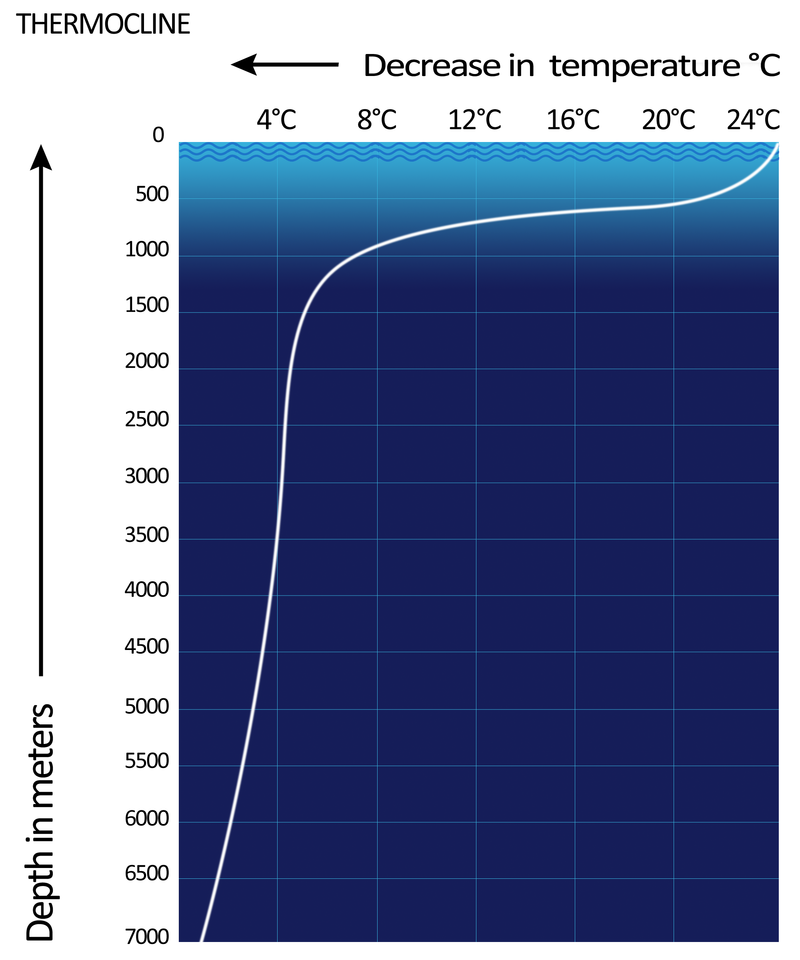Lets take a look at this mathematically:
First off, take a look at Earth's energy budget. The incoming solar radiation is $\approx 240~\frac{\text{W}}{\text{m}^{2}} = 1.73 \cdot 10^{17}~\text{W}$ total. Imbalance between incoming and outgoing is about $\left(0.60 \pm 0.17\right)~\frac{\text{W}}{\text{m}^{2}}$, so relatively insignificant. This means that Earth radiates about $1.72 \cdot 10^{17}~\text{W}$.
Earth's oceans are a significant heat regulator for the planet, and contain about $1.4 \cdot 10^{21}~\text{kg}$ of water (source). This means a change of 1 °C in the oceans is equivalent to about $6 \cdot 10^{24}~\text{J}$ of heat energy. From this we have:
$$ \frac{6 \cdot 10^{24}~\text{J}}{1.72 \cdot 10^{17}~\frac{\text{J}}{\text{s}}} \approx 3.5 \cdot 10^{7}~\text{s}=405\,days $$
So it would take a little over a year for the ocean temperature to drop by 1 degree Celsius.
For the purpose of the question, let's assume the majority of Earth's readily available heat is contained in the ocean, such that the ocean temperature directly correlates to the atmospheric temperature. This is an oversimplification, but not to far off (and in reality, the ground also stores a significant quantity of heat, so this will likely lead to an overestimate of how quickly the temperature drops).
This result means we would actually have quite a bit of time (on the order of years) before Earth became unlivable. Likely, we would see an immediate drop in temperature such that the mean temperature becomes about the same as we would expect for nighttime temperature. After this, we would see a more gradual decline corresponding with the loss of heat from Earth due to radiation. People in northern latitudes or desert regions would likely be in immediate danger, but tropical regions would likely remain livable for quite some time, and you are not in danger of the atmosphere freezing for a couple centuries at least.
The other immediate danger would be massive plant die-offs (due to lack of sunlight) followed by massive animal die-offs due to loss of food sources. The plant die-offs would have an interesting side effect of increasing carbon dioxide concentration in the atmosphere, leading to a stronger greenhouse effect and reducing the atmospheric heat loss.
Given the relatively slow heat loss, we should have enough time to build enclosed habitats powered by geothermal energy (coal, oil, and nuclear are all still options as well, but if you are already underground geothermal is quite convenient). There would still be significant casualties, but the short term effects would be at least as survivable as a nuclear winter.
Longer term (after about a century), the oceans would eventually freeze, followed by the atmosphere. At this point the surface would be completely inhospitable, and we would have to rely on underground habitats to survive.
So, given sufficient organization, yes, the human race should be able to survive.

